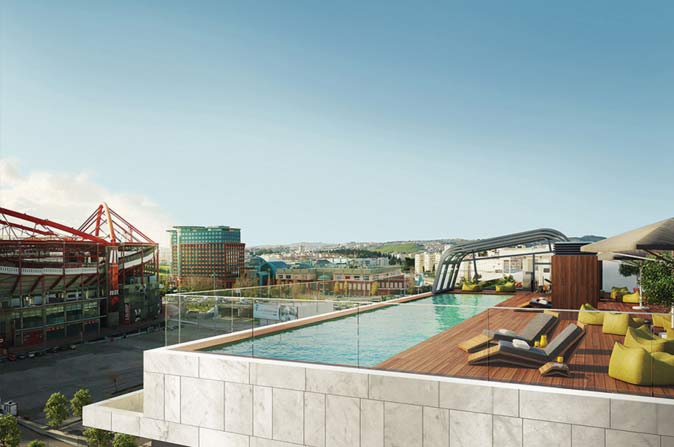Real Estate & Construction / Portugal
Should you buy a second house in Portugal?
Portuguese property is looking the best bet in decades. Schemes targeting wealthy investors are not only attractive but set to buoy the market in the future

Benfica Stadium and Colombo shopping Center in Lisbon
Since Portugal’s ‘clean’ exit from its euro-zone bailout, investors have viewed it more favourably. But what about property? In residential, first-quarter prices were up 4% on the year. Rental demand is at a high. “This is the best time in almost 30 years to invest,” says Manuel Alvarez of RE/MAX, citing prices at 1980s levels. “Your investment is secure, and the yield is 6 to 7%.”
The sector has since 2012 been galvanised by the Residence Authorisation for Investment Activity, or ‘golden visa’. Thanks to a well-drafted law, this fast track for non-European Union investors has proved a hit despite the minimum threshold – €500,000 – being twice that of Greece. The scheme is a victim of its own success: visas once took a month to process but now can take several. Still, by end-August 1,441 were issued (1,159 to Chinese), bringing in €870m.
To avoid the hefty fees of Chinese immigration agents, developers suggest coming directly to them; realtors counter this means not getting a feel for what is available. “Agents’ commissions can be very high; the market covers this by raising property prices,” notes Henrique Moser of Lisbon law firm Telles. “But agencies are often essential in investors’ coming here.”
Big investors seeking ultra-safe property hunt ‘trophy’ buildings in London or Paris. Those wanting bargains look elsewhere. Portugal may recover more slowly than Spain but whereas a year ago Lisbon’s investment prospects were poor, they have since risen more sharply than Madrid or Barcelona – while Athens remains a no-go area for many.
Factors such as Portugal’s great infrastructure, security and welcoming locals count for a lot. But investors should focus on the prime segment that is being buoyed by golden visas; other prices could even slip further.“The worst thing would be if the rules of the game changed” notes Moser. “We don’t see that for a while, but there are no guarantees.” Meanwhile, the market is also benefiting from the Non-Habitual Resident scheme, whose offer of tax-free living draws EU citizens to the Algarve, with its mild climate and lovely beaches.
